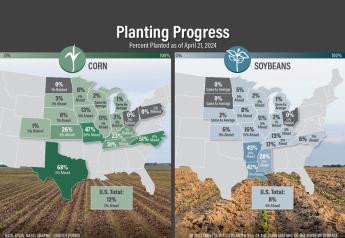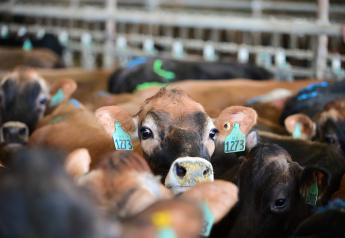Rebuttal of Environmentalists Report of Wisconsin Dairy Farms
By: Robert B. Levine, Ph.D. and Christopher D. Maloney | Digested Organics, LLC
As a manure management technology provider that works with both CAFOs and smaller farms in Wisconsin on a daily basis, we believe it is important to provide an independent response to the recently published Socially Responsible Agricultural Project (SRAP) report “The Rap Sheets: Industrial Dairies in Kewaunee County, Wisconsin” and “The Regulatory Failure of the Wisconsin Department of Natural Resources: A Threat to Public Health and the Environment” to:
• Correct several critical errors that continue to be repeated in the media;
• Refute the notion that these CAFO’s are willfully and negligently mismanaging their manure operations; and
• To focus on how appropriate on-farm manure treatment can help mitigate the environmental impacts of current manure management practices.
We agree that groundwater contamination is a serious issue in Kewaunee County, especially considering the geological Karst structure throughout the region. 1 It is not factual, however, to state that “As of June 2013, 30.85 percent of tested drinking water wells county-wide contained nitrates and/or dangerous E. coli bacteria at levels deemed unsafe for human consumption by state and federal authorities”.
We believe the authors are referencing a Kewaunee County Land & Water Conservation Department (LWCD) report to the County Board that summarized data on 483 well samples analyzed between August 2004 and June 2013.2 This was a voluntary testing program, whose stated goal is "to introduce private rural well owners to the importance of regular, periodic well testing" and does not represent a random sample of the estimated 4,600 wells in Kewaunee.
If we consider these to be the most up to date data, then it is accurate to say that 149 well samples, or 3.2% of all wells in the county and 30.8% of all samples tested, have been found at one point in the last 10 years to contain unsafe levels of E. coli bacteria and/or an elevated concentration of nitrate.
The severity of the issue notwithstanding, the report is wrong to focus exclusively on CAFOs as the source of the problem. Kewaunee has roughly 42,000 cows plus young-stock generating 550 million gallons of manure each year. And while the CAFOs maintain a large percentage of the herd, there are still 148 non-CAFO dairies in the county that store and spread manure.
The authors of the SRAP report would have us believe that CAFOs intentionally and negligently contaminate groundwater, but after working closely with dairymen across the county and the State, we can confidently say that nothing could be further from the truth. CAFOs we talk with are actively investigating and/or pursuing on-farm manure treatment technologies that can rationally and cost competitively address the issue.
We have yet to meet even one that doesn’t want to be a responsible environmental steward of the land and doesn’t take the issue of groundwater contamination seriously. The authors suggest the best path forward is to get rid of CAFOs or at least “slow the rapid expansion and concentration of CAFOs in Wisconsin.” This continues to be the now tired mantra of the Kewaunee CARES group and their affiliates and continues to ignore the fact that their stated goal would eliminate hundreds of jobs across this State’s largest industry as well as millions of dollars of rental income for local land owners.
We need more efficient dairy farms, not less, to meet the growing demand for food and Kewaunee’s CAFOs are some of our nation’s most productive. We believe, as do most CAFOs, that growth in the dairy industry should not come at the expense of the environment. However, it is well understood that because of the unique Karst geography in this region and the seasonal pattern of heavy rainfalls, any sized dairy following even today’s best management practices would still likely at some point contribute to groundwater contamination.
Of course, the DNR could further tighten regulations on spreading, increase the number of inspections, add more fines and penalties for spills, etc., but all this would still barely move the dial on the groundwater issue. We believe it is time to have a more rational discussion on how we can help the dairy industry’s largest producers not only stay in business but grow, enabling even more jobs and more tax revenue for hurting counties like Kewaunee.
It is time to get serious about adopting onsite manure treatment technologies that can start to address the challenge at its source—the farm. Digested Organics is one of several technology companies working to provide manure management solutions to the dairy industry in Wisconsin.
Finally, we believe that Kewaunee, which has experienced more growth in their dairy industry than any other county in the State since 1983, has an opportunity to focus its collective energies around this important issue to help solve the actual problem, promote sustainable growth, and show strong leadership in the State.
County Chairman Heuer and members of the board have already taken the first step by laying out a pro-business vision to solve the problem. We encourage all the stakeholders in Kewaunee County, including the authors of this SRAP report, to stop looking for someone to blame and force out of business and start working inclusively with County leadership, dairymen and others in the State trying to proactively solve this issue. It won’t happen overnight but it is possible to start today.







